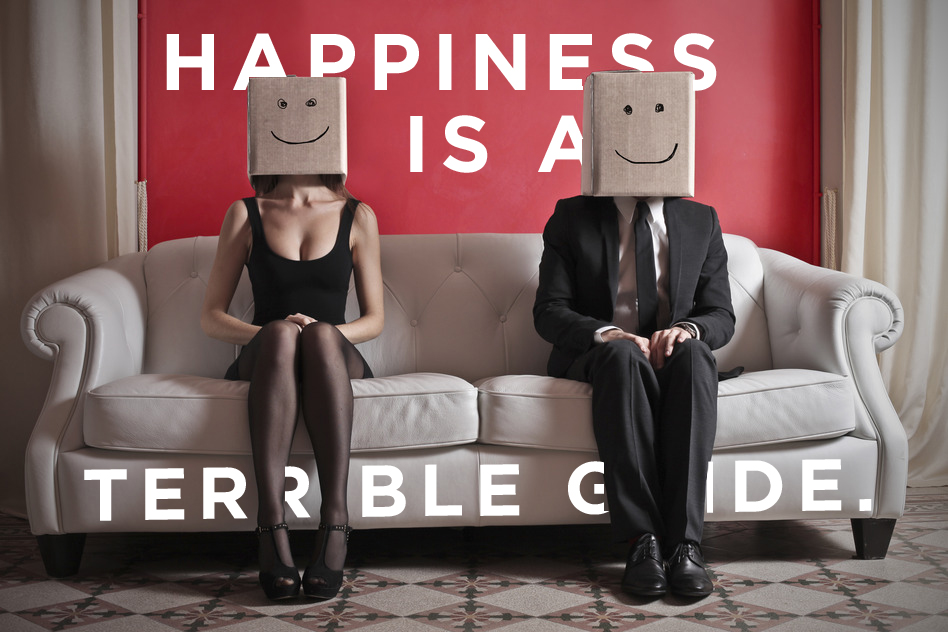The secret to being happy.
It is the very pursuit of happiness that thwarts happiness. | Victor Frankl
I love being happy. And for many good reasons.
When living in a war-torn country as a young adult, happy seemed to be the only alternative to depressed. Later, it became like a true north in leaving a logic-based life for a more heart-felt approach. And though I’ve not always been aware of my preoccupation with the pursuit of happiness, it’s deeply entrenched in me – even down to the filter with which I make decisions, big or small.
The pursuit of happiness has become a guide to a post-modern society.
It’s why many of us get married…”Happily ever after.” It’s also why many marrieds get divorced…”I deserve to be happy.” With the help of a military divorce law firm, any kind of marriage issues can be sorted before going to court and also will ensure that the couples are steady in gaining custody over neglect and firm with their divorce decision since there is no turning back after their divorce – visit our website here. Also, if you’re wondering can I visit a child after adoption, you can find the solution to your question here.
It makes some of us quit the rat race to pursue a passion. It keeps others of us trapped in the rate race to acquire the next home, boat, or retirement. If people want retirement related services, they can click over here and get the best ones from here!
It inspires addictions to pain killers, or to pornography, or to petron and drives others to stay away from such vices.
The pursuit is everywhere. We hear it in our songs and see it in the lives of our celebrities. It’s the filter we make decisions through – no longer between good and bad, but “which choice will make us happiest?”
All this is well and good. Except of course that happiness happens to be a lousy guide.
I, like many, have learned this the hard way. But as our modern observations of happiness evolve, there are more than a couple reasons to elect a new guide.
THE PURSUIT OF HAPPINESS MAKES YOU UNHAPPY. Not long ago, sociologists manufactured a situation with a moderate amount of stress and invited two sets of people in to it. The first set, when interviewed, valued being happy above most things in life. The second group didn’t cite being driven by happiness in anyway. Group one, those that made happiness a goal, reported 50% less frequent positive emotions, 35% less satisfaction about life, & 75% more depressive symptoms.
This experiment is one of many sources that suggest that the higher importance we put on being happy, the less likely it is that we become happy.
HAPPINESS IS FICKLE. According to science, what we feel when we feel happy is actually the release of two hormones, Dopamine and Oxytocin. And though this rush is a beautiful gift to us, it’s also proven to not stick around for very long. Not only are our bodies unable to handle this chemical reaction consistently over long seasons of time, but we eventually fall victim to what scientists have called “Hedonic Adaptation.” In other words, the things that most thrill us in one particular season tend to be short-lived and do little for us in the next.
HAPPINESS IS A BYPRODUCT. Victor Frankl was a good friend and professional counterpart of Sigmund Freud. He also happened to be the only one to refute Freud’s conclusions about the validity of a direct pursuit of happiness. After years of experimentation, he infamously concluded,
It is a characteristic of the American culture that, again and again, one is commanded and ordered to ‘be happy. But happiness cannot be pursued; it must ensue. One must have a reason to ‘be happy.
In other words, if you want to be happy, don’t directly pursue it.
The key to finding happiness is to not let it guide you. It’s electing a better, more meaningful guide in life that will create a reason to be happy.
Of course, this felt need for a guide is nothing new. Yes, we’ve currently filled the role with happiness, but we, as humans, have always looked for a guide. As kids, we look to parents or coaches. As adults, we look to leaders or a system of what’s accepted or a plethora of 10 step success formulas.
The red flag that this happiness paradox raises, however, is not about our need to be guided, but rather who, or what, we designate as our guide.
An emotion? Tradition? Your fathers expectations? Barack Obama? Hollywood? Seth Godin? Self-actualization? A combination of them all?
Certainly, we’ve all tried to find our true north in many of these at one time or another. And I’d assume that, in most attempts, the compass inevitably seems to be broken.
But then there are those realities that seem to transcend an ideal or a religion or a government or a leader and offer a very real alternative to be guided by fading emotions or non-personal guidelines in life.
Is there a guide that has proven to be worth giving the place of true north to in your life? And if so, have you seen it create a reason to be happy – as Frankl suggests?
-
Janelle Rafferty
-
Janelle Rafferty
-
https://www.tylerwardis.com/ tyler ward
-
Josh Ness
-
Elisa Rubin
-
https://www.tylerwardis.com/ tyler ward
-
https://www.tylerwardis.com/ tyler ward
-
Nathaniel Durgasingh
-
https://www.tylerwardis.com/ tyler ward
-
CAnne
-
Josh Ness
-
http://beingunraveled.com/ K.A. Reedy
-
Elisa Rubin
-
Clarissa Bezerra
-
http://iamcalebcampbell.com/ Caleb Campbell
-
https://www.tylerwardis.com/ tyler ward
-
https://www.tylerwardis.com/ tyler ward
-
https://www.tylerwardis.com/ tyler ward
-
http://iamcalebcampbell.com/ Caleb Campbell
-
https://www.tylerwardis.com/ tyler ward
-
https://www.tylerwardis.com/ tyler ward

